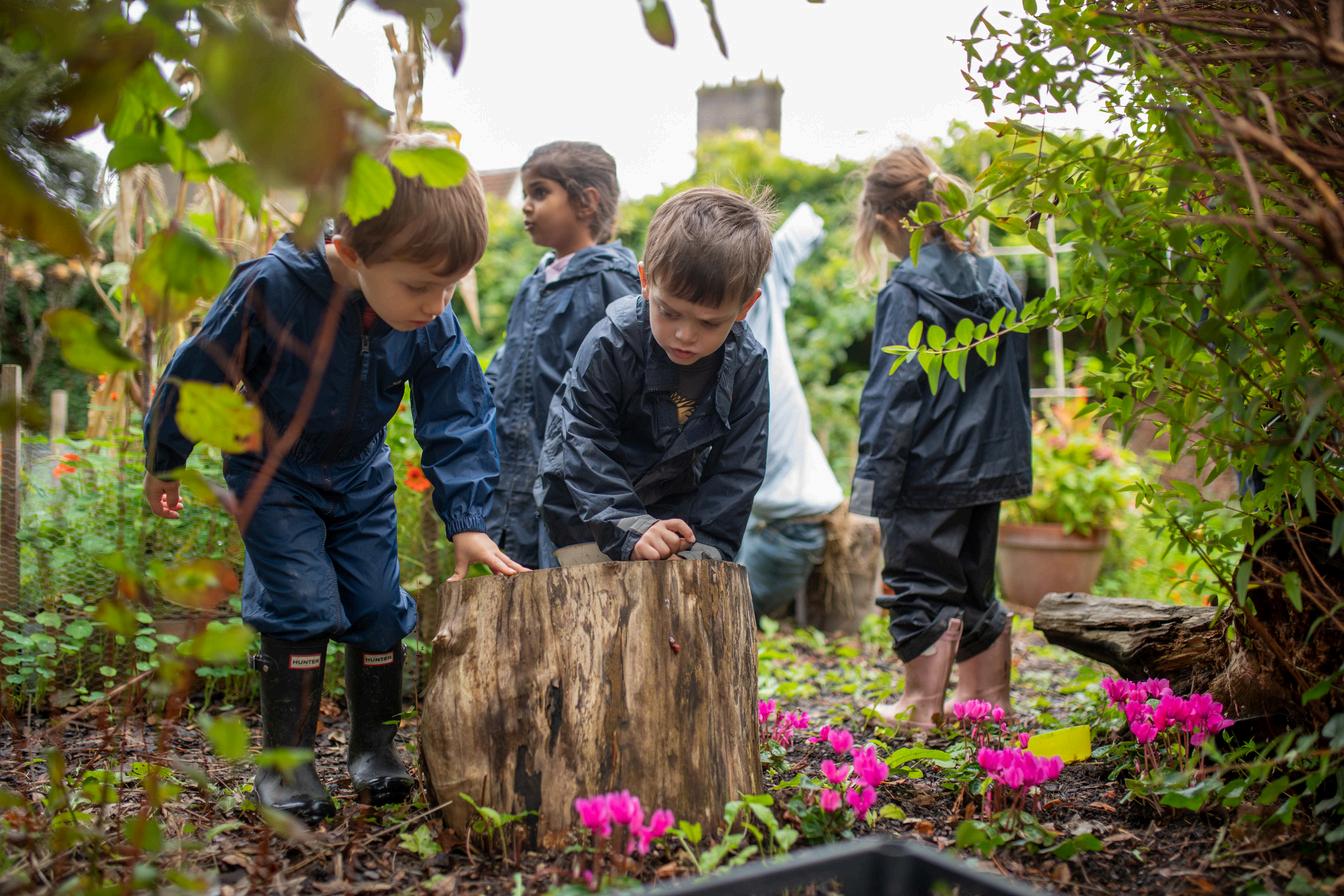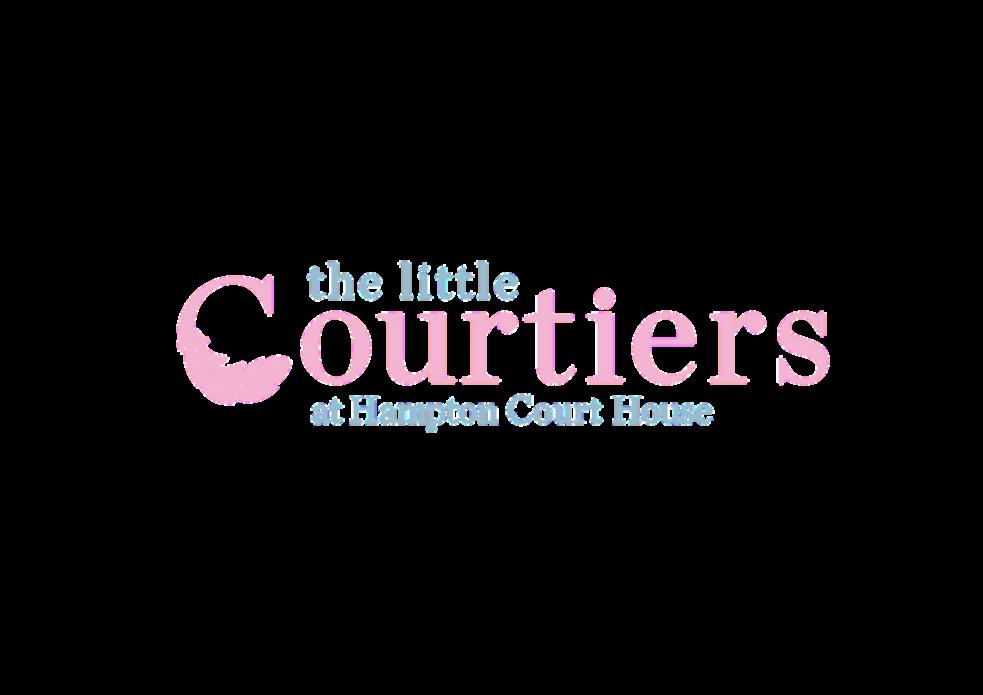








Welcome to Early Years at Hampton Court House! We're absolutely thrilled that you and your little ones are part of our beautiful pre-prep school, nestled on the edge of Bushy Park. Here, we strive to provide a tailored education in a supportive environment that motivates children to develop the skills they need for their future learning.
From the ages of 2 to 5, we embark on a journey of exploration and education with the children Our approach is a unique blend of the Early Years Foundation Stage, the Forest School approach, and influences from Montessori and Reggio Emilia This allows our little ones to strike the perfect balance between indoor and outdoor learning activities at every stage of their development What's truly wonderful about our curriculum is that it revolves entirely around your child We create an individualised curriculum for each little one, allowing them to learn at their own pace and cultivate the skills they need to reach their full potential I am deeply passionate about giving children the very best start in their learning journey For over 20 years, I have worked across primary education, with much of my career focused on ensuring that every child has the foundations they need to thrive I'm fortunate to be surrounded by an exceptional team, some of whom have been part of HCH for an impressive 23 years! Our focus at The Little Courtiers at Hampton Court House revolves around three main pillars: your children's safety, their wellbeing, and their individually crafted education We're committed to ensuring that your little ones receive the best education in a caring and nurturing environment a true "home away from home " As you step foot onto the grounds of Hampton Court House, something truly enchanting happens Your children have the privilege of attending our beautiful parkland school where education blooms
Warm regards,

Imogen Stone Head of Little Courtyard


At Hampton Court House, we offer a play-based and child-centred Early Years Foundation Stage (EYFS) curriculum This means children have opportunities for self-directed play while teachers observe and plan for their next steps according to children’s interests and needs.
The EYFS is a holistic educational curriculum, and we draw influences from Montessori (a focus on fine motor development) and Reggio Emilia (a focus on project-based activities that originate with child’s interests) adding to the bespoke way we offer activities to children We also are very proud to offer the Forest School approach, with a dedicated Forest School area and trips to Bushy Park
The EYFS covers seven areas of learning There are three prime areas of learning and four specific areas
Prime Areas of Learning
Personal Social and Emotional Development (PSED) Communication and Language
Physical Development
Specific Areas of Learning
Mathematics
Literacy
Understanding the World Expressive Art and Design
Please visit our website to find out more about the Nursey and Pre prep curriculum and the seven areas of learning.

As part of the children’s early years curriculum, we have weekly forest school sessions We are fortunate to have a dedicated forest school space within our school grounds, as well as Bushy Park on our doorstep. Like our bespoke curriculum, forest school is a holistic, child centred approach taking children’s learning opportunities outside.
During our sessions, we encourage children to take supported risks, explore the outdoors and play We play a variety of games that help children learn to keep themselves safe in an outside environment as well as activities like den building, climbing, minibeast hunting, learning about animal habitats, and so much more
Forest School helps us to mould the next generation of eco warriors, as they learn about ecofriendly ways to look after our planet They develop their knowledge from first-hand experiences being in nature as well as building social skills, confidence, physical skills and coordination, resilience and self-esteem
At Hampton Court House, the Forest School approach enables all children to be:
equal, unique and valuable; competent to explore & discover; entitled to experience appropriate risk and challenge; entitled to choose and to initiate and drive their own learning and development; entitled to experience regular success; entitled to develop positive relationships withthemselves and other people; and entitled to develop a strong, positive relationship with their natural world


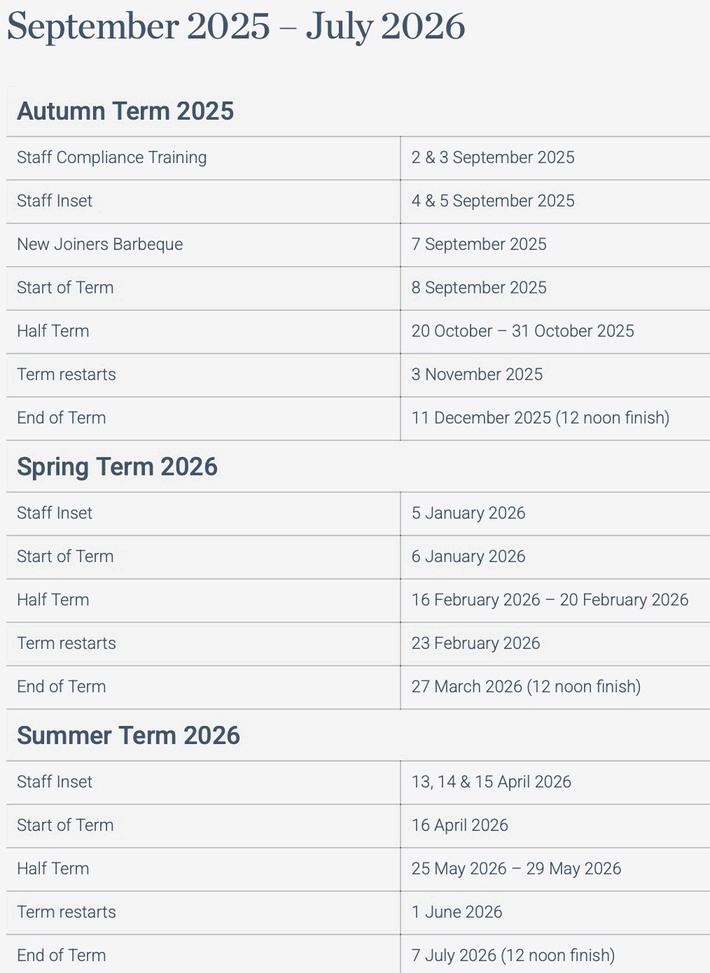

Head of The Little Courtyard and Deputy Designated Safeguarding Lead
Imogen Stone ist@hchnet.co.uk
Early Years Co Ordinator & Reception Teacher (Deputy DSL)
Emma Trimmer etr@hchnet.co.uk
Deputy Head of Early Years and Nursery Teacher
Maritza Amado maq@hchnet.co.uk
Pre-Nursery Teacher
Oscar Jara Castillo ojc@hchnet co uk
Forest School Lead
Latifa Mihoubi lm@hchnet co uk
Early Years Teaching Assistants
Shahina Ghaibizai
Tanya Bowskill
Olivia Sullivan
Reception Teaching Assistant
Nursery Assistant
PreNursery Assistant

This is a sample of a range of activities that form part of a typical day/week in Early Years, but timetables are subject to change and differ according to the ages of the children involved.
More detailed information, specific to each class group, is provided to parents and/or carers on a termly basis
Pre-nursery is for children aged 2 to 3 years
Nursery is for children aged 3 to 4 years
Reception is for children aged 4 to 5 years
Children arrive and settle in
Specialist lessons
Lunch
Uninterrupted continuous provision
Home time


This policy is a statement of the procedure followed at Hampton Court House School (HCH) for the collection of children from the early years setting, to ensure their safety and well-being
When children start at HCH, parents and/or carers are asked to complete admissions forms, this includes giving details of all designated adults, authorised to collect children from the school It is school policy that no person under the age of 16 years will be allowed to collect a child from the Early Years
If a child’s Key Person feels that a parent and/or carer may be under the influence of either alcohol or drugs and the safety and well-being of the child may be compromised, the member of staff must inform the Head of Little Courtyard, who will take appropriate action This may include contacting another person on the emergency contact list or a family member If another designated person is not available, then social care and/or the police will be contacted In the event of a parent and/or carer failing to collect a child the procedure set out below will be followed: All emergency contacts and authorised adults known to the school, will be contacted and messages left as necessary
Following our Uncollected Child Policy, the child will be cared for at school while collection arrangements are being confirmed If by 5 30pm no contact has been made with emergency contacts and/or authorised adults, the school will call social care and/or the police A child will never be handed over to an unauthorised adult Parents and/or carers are reminded that in line with school policy, any change to a child’s collection arrangements must be notified to the child’s Key Person prior to collection, and all school records updated Details of the adult collecting the child and photo ID must be provided in advance
In the event of an emergency, please contact the Head of Little Courtyard or your child’s Key Person to discuss collection arrangements

Each child in Early Years is assigned a Key Person whose role it is to ensure that the individual needs of the child are met They help children to settle in when they first join the setting and establish strong and supportive links with parents and/or carers Parents and/or carers will be given the name of their child’s Key Person and their school email address, when they start attending the setting, and many opportunities will be provided for informal meetings so that important information can be shared
Early Years staff work closely with the school SENCO in supporting learning and providing additional support as appropriate We value the importance of early identification of a child’s additional needs to give them the support they require at the earliest opportunity For further information, you can download our SEN provision booklet and SEND policy from the website
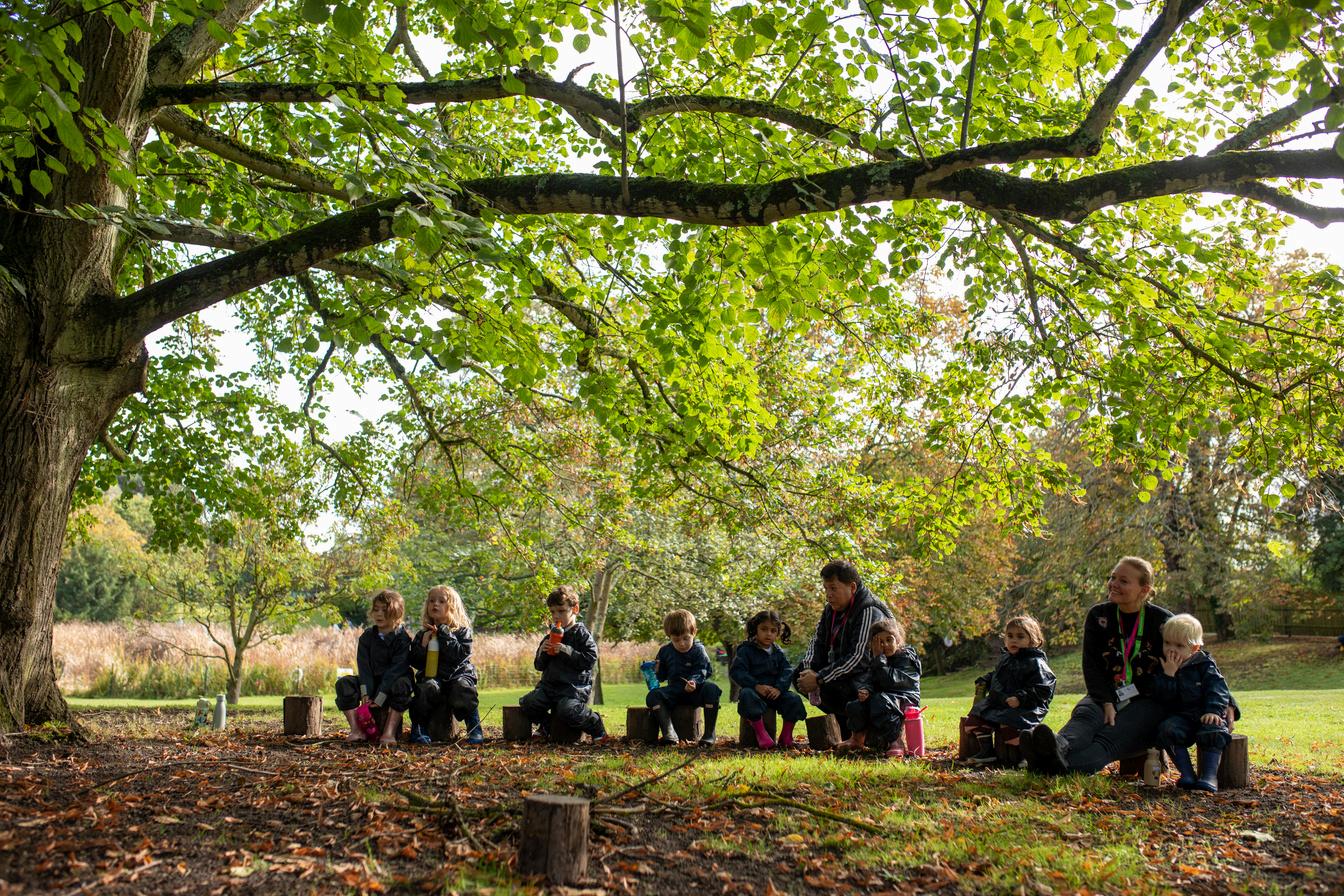

We believe that children flourish best when their personal, social and emotional needs are met and where there are clear and developmentally appropriate expectations for their behaviour. We want every member of our school to feel valued and respected.
Children need to learn to consider the views, feelings, needs and rights of others and notice when their behaviour has an impact on people, places and objects. This developmental task requires support, encouragement, teaching and role modelling. Promoting personal, social and emotional development underpins the children’s understanding of positive and considerate behaviour.
We aim to teach children to behave in socially acceptable ways and to understand the needs and rights of others. The principles guiding the management of behaviour exist within the programme for supporting personal, social and emotional development.
Methods
All staff are responsible for helping children to behave well. We have a named person who has overall responsibility for our programme for supporting personal, social and emotional development, including issues concerning behaviour. This person is Imogen Stone.
We recognise that codes for interacting with other people may vary between cultures and require staff to be aware and respectful of this.
We require all staff, volunteers and students to provide a positive model of behaviour by treating children, parents and one another with friendliness, care and courtesy.
We familiarise new staff and volunteers with the school's behaviour management policy and its guidelines for behaviour.
We expect all members of the setting - children, parents, staff, volunteers and students - to keep to these guidelines.
We work in partnership with each child’s parents. Parents are regularly informed about their child's behaviour by their Key Person or the management.
We work with parents to address recurring unexpected behaviour, using our observation records and daily records to help us to understand the cause and to decide jointly how to respond appropriately. ABC (Antecedent – Behaviour - Consequence) observations to support where a pattern can be identified, and a team agenda be implemented between the team, child and parents to offer support.

1 We require all staff, volunteers and students to use positive strategies for handling any inconsiderate behaviour We help children find solutions in ways which are appropriate for the children’s ages and stages of development Such solutions might include: the acknowledgement of feelings, explanation as to what was not acceptable and supporting children to gain control of their feelings so that they can learn a more appropriate response
2 We ensure that there is a sufficient range and quality of activities available so that children are meaningfully occupied without the need for unnecessary conflict over sharing and waiting for turns
3 We acknowledge considerate behaviour such as kindness and willingness to share In reception, these are rewarded by displaying children's names on a proud cloud to acknowledge their beautiful behaviour or through the use of a whole class marble jar reward system (when the jar is full the children get a treat such as extra play time)
4 We support each child in developing self-esteem, confidence and feelings of competence
5 We support each child in developing a sense of belonging in our setting, so that they feel valued and welcome
6 We avoid creating situations in which children receive adult attention only in return for inconsiderate behaviour
7 When children behave in inconsiderate ways, we help them to understand the outcomes of their actions and support them in learning how to cope more appropriately using ageappropriate resources and books
8 We never send children out of the room by themselves or leave them alone
9 We never use physical punishment, such as smacking or shaking, children are never threatened with any form of corporal punishment
10 We do not use techniques intended to single out and humiliate individual children
11 We use physical restraint, such as holding, only to prevent physical injury to children or adults and/or serious damage to property If physical restraint is necessary, then the member of staff who carried out the restraint will fill out an incident form Details of such an event (what happened, what action was taken and by whom, and the names of witnesses) are brought to the attention of the management and are recorded in the child's personal file The child's parent and/or carer is informed on the same day
12 In cases of serious misbehaviour, such as racial or other abuse, we make clear immediately the unacceptability of the behaviour and attitudes, by means of explanations rather than personal blame This behaviour would be noted on an incident form and shared with parent and/or carer to read and sign
13 We do not shout or raise our voices in a threatening way to respond to a child's inconsiderate behaviour
14 After exhausting all other positive behaviour management strategies, children are asked to sit for some ‘thinking time’ and to reflect on their behaviour with the support of their Key Person or another Early Years practitioner

It is a requirement that prior to a child starting at HCH, parents and/or carers share with the School information about any special dietary requirements, food preferences and food allergies, as well as any special health conditions that a child might have. This information is held on the School Management Information System (iSAMS) and is shared with staff.
Meals, snacks and drinks provided by HCH School or sent in by parents and/or carers must be healthy, balanced and nutritious Parents and/or carers are encouraged to send in a healthy snack daily and in addition fruit is available throughout the day
The School’s catering team provides healthy hot and cold lunches that are freshly prepared onsite Menus are published weekly and made available to parents and/or carers via the HCH School website
HCH School aims to be a NUT FREE environment
Children always have access to drinking water
At Hampton Court House School, we promote the good health, including the oral health, of children in our care and take all necessary steps to prevent the spread of infection.
If a child suffers a stomach upset or sickness at school, parents and/or carers will be contacted immediately and asked to collect their child If a child is unwell while at home, please do not send them into school It is very important that you allow a period of at least 48 hours after a bout of sickness or diarrhoea has finished, before sending them back into school, to prevent the infection spreading to other children and staff in the setting
If your child has a high temperature at school as a symptom of being unwell, we will call parents and/or carers to collect their child It is important to allow a period of 24 hours after their temperature returns to normal before sending them back into school Whenever your child is absent from school, for any reason, please remember to contact your child’s Key Person to explain the absence, so that we are able to keep our records up to date Parents and/or carers are required to give HCH School emergency contact numbers, so that they can be reached immediately in the event of illness or an accident

Parents and/or carers must ensure that HCH School is kept fully informed of any change in a child’s physical and/or mental health
School records must be updated on the School Management Information System (iSAMS) and shared with relevant staff If a child is identified as having specific medical needs, the child’s Key Person will discuss with the Head of Little Courtyard, how the setting can meet those needs and an action plan will be drawn up Where administration of any medicine requires medical or technical knowledge, paediatric trained staff in early years, will receive additional training Prescription medicine prescribed for a child by a doctor, dentist, nurse or pharmacist, and nonprescription medicine, will only be administered to a child where written permission has been given by the child’s parent and/or carer A Medical Administration at School Form must be completed and signed by the child’s parent and/or carer All medicines will be kept in a secure location in accordance with health and safety requirements A written record will be retained to show each time a medicine has been administered to a child, and a parent and/or carer will be informed on the same day or as soon as is reasonably practicable
We try to keep children out of the sun during the hottest hours of the day and we encourage children to play in the shade.
We ensure children wear a sun hat and loose, long sleeved clothing as necessary If children have fair skin we remind parents and/or carers to dress them in protective clothing that covers their arms and legs
We keep children well hydrated Water is accessible at all times
We ask parents and/or carers to send in sunscreen that has a suitable SPF, to reduce the risk of sunburn It should be clearly labelled with the child’s name and in-date
We ask parents and/or carers to apply sunscreen at home each morning, or as necessary Where staff are asked to reapply sunscreen during the day, parents and/or carers are required to sign a consent form before staff can do so Consent forms are available from staff in the Early Years setting

We highly value the strong collaborative and reciprocal relationships developed between the school, child and the family. We value parent involvement within the school and encourage parents to take an active role whilst their child is in our care.
Early Years at HCH uses Tapestry, an online learning journal, to capture and share with parents observations of children’s learning experiences Weekly newsletters are sent home to keep parents well informed about the life of the school Parents and teachers communicate via school email Class teachers are available at the start and end of each session for informal discussions with parents Written communication with HCH is available through school emails
Parent – Teacher meetings are held in the Autumn and Spring Terms A written report is given to parents at the end of each academic year
The Two Year Progress Check is completed at approximately 27 months (or between 2 and 3 years) and shared with parents Baseline assessments and End of EYFS Profile Assessments are shared with parents In the Reception class parents communicate via their child’s reading diary
In collaboration with the Friends of HCH, the school holds a wide range of events for parents and the school community, which includes: a ballet show, sports day, fireworks display, Winter Fayre and Summer Fête

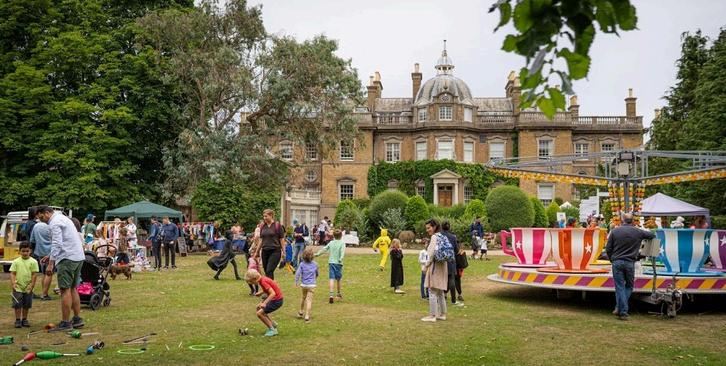

Whole School Policy documents are available for parents to view or download from the HCH School website, hard copies are available on request
Examples include:
Accessibility plan
Uncollected child policy
Feedback, concerns and complaints policy and procedures
Risk assessment policy
Safeguarding and child protection policy and procedures
Always speak to your child’s Key Person or the Head of Little Courtyard if you have any questions relating to HCH School policies.
